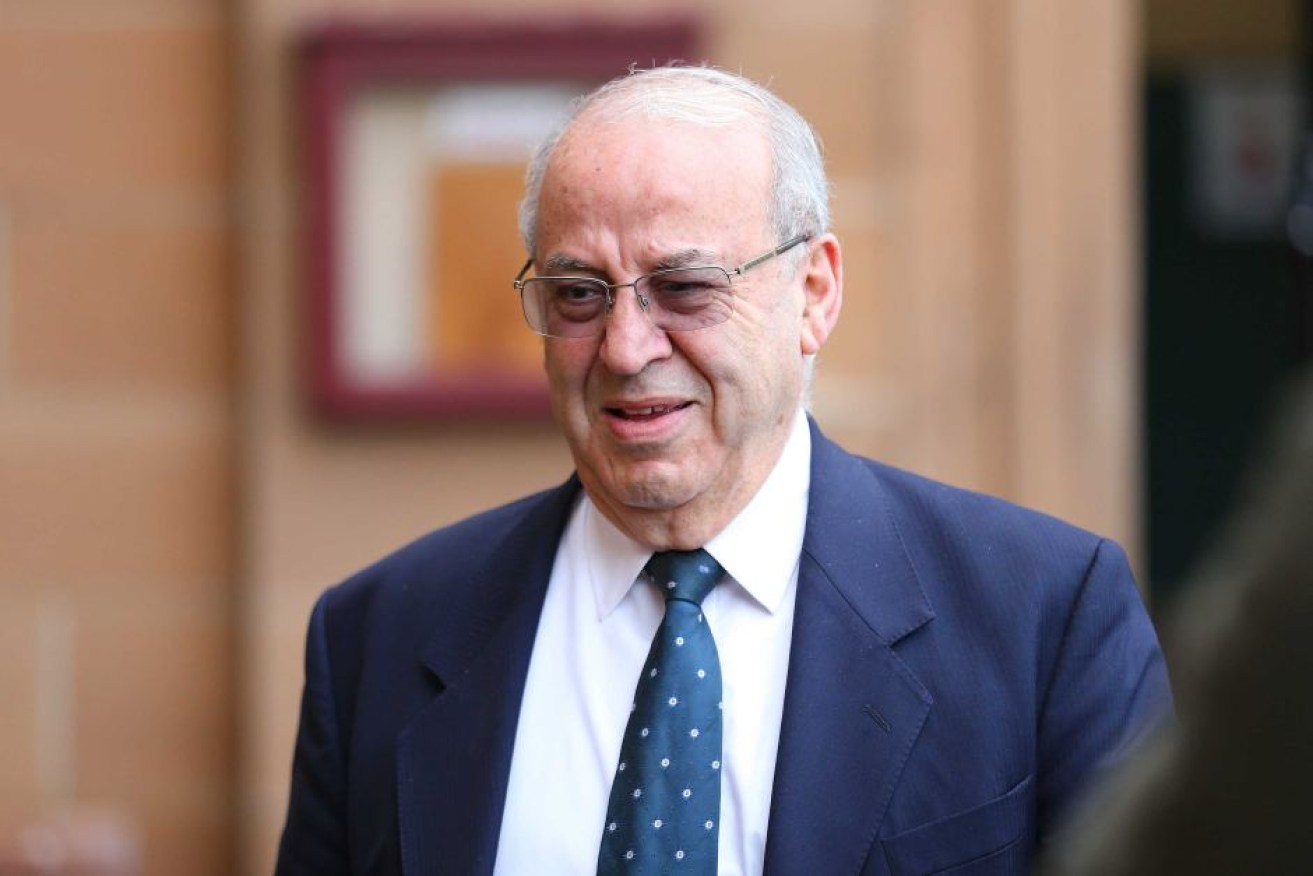Eddie Obeid: The rise, reign and recession of NSW’s most notorious political powerbroker

Former NSW minister Eddie Obeid had built business and political empires. Photo: AAP
The sentencing of former Labor powerbroker Eddie Obeid is a day of reckoning for a man who once wielded his influence to build and destroy the careers of premiers and MPs in New South Wales.
Obeid has been sentenced to five years’ jail, with a minimum of three years, for misconduct in a public office in relation to his family’s secret business dealings at Circular Quay.
Edward Moses Obeid was born in a village in northern Lebanon in 1943, and after moving to Australia as a child, worked as a cab driver and at local Arabic-language newspaper El Telegraph.
Within a few years he was running that newspaper, and was recruited by Labor powerbroker Graham Richardson to join the party in 1972.
ABC investigative journalist Marion Wilkinson’s book The Fixer describes how Obeid was soon providing invaluable advice to Richardson on how to politically organise ethnic communities.
It was Richardson who gave Obeid the necessary backing to see him elected to the NSW Upper House in 1991, and he rose through the ranks to become the minister for fisheries and mineral resources from 1999 to 2003.
But it was his creation and control of the so-called Terrigals sub-faction of the Labor Right that would go on to dominate NSW Labor for the better part of two decades.
One king to rule them all
The sub-faction was formed, with Obeid its undisputed king, at a now infamous meeting at his beach house in Terrigal in 1992.
It went on to use its numbers relentlessly to fundraise, control pre-selections, guide policy and elevate chosen MPs to the frontbench.
At the height of its powers, the Terrigals sub-faction was instrumental in installing and removing a series of premiers – namely Morris Iemma, Nathan Rees and Kristina Keneally.

Nathan Rees was ousted as NSW premier after standing up to Obeid’s sub-faction. Photo: ABC
Mr Iemma has said his premiership became “untenable” because he could not convince the Terrigals to approve his preferred ministerial reshuffle.
Mr Rees was rolled after standing up to the sub-faction by sacking Ian Macdonald and Joe Tripodi from the ministry.
Just before he was knifed, Mr Rees famously said: “Should I not be Premier by the end of the day, let there be no doubt in the community’s mind, no doubt, that any challenger will be a puppet of Eddie Obeid and Joe Tripodi.”
How the empire unravelled
But Obeid’s influence was broader than the parliamentary caucus.
His diary entries from 2007 to 2009, tendered to Independent Commission Against Corruption (ICAC) hearings, show a revolving door of developers, union bosses and business figures queuing up to seek appointments with him.
With a string of business and property interests in both Australia and Lebanon, Obeid was already wealthy when he entered Parliament and he continued to build both his financial and political empires while an MP.
"Mr Obeid will you please stand up:" Judge sentences disgraced fmr NSW Labor minister Eddie #Obeid to minimum of 3 yrs in prison. @abcnews pic.twitter.com/1YJX7ZTYvE
— Nick Dole (@NicholasDole) December 15, 2016
And it was the mixing of his political and business ties which eventually led to him being convicted on June 28 this year of misconduct in a public office.
Obeid was found to have lobbied the then-deputy chief executive of the State Maritime Authority, Steve Dunn, over Circular Quay leases – without revealing that his family secretly owned a series of harbourside cafes in the Quay.
The Crown said Obeid knew Mr Dunn from when he had been fisheries minister, and argued that he misused his position as an Upper House MP to “dupe” Mr Dunn into believing he was acting on behalf of constituents.
The court found he was in fact trying to stop a competitive tender process for the leases to financially benefit his own family.
Prosecution not to be scoffed at

Steve Dunn, Eddie Obeid and Joe Tripodi faced the ICAC enquiry. Photo: AAP
The prosecution stemmed from a corrupt conduct finding by the ICAC.
In his findings in the ICAC inquiry into the Circular Quay leases, assistant commissioner Anthony Whealy described the former MP’s actions as demonstrating “the moral vacuum at the core of his political being”.
When the ICAC first handed down its finding, Obeid scoffed that he believed there was “less than a one per cent chance” that he would be prosecuted as a result.
Even when charged, he still said he had “no concerns whatsoever” and was “very confident” he would not be convicted because he was innocent.
Labor has done its best to exorcise itself of Obeid, ending his influence and calling for the courts to throw the full force of the law at him.
But no matter how hard it may try, Obeid’s fingerprints will forever remain all over a chapter of its political history in NSW.
-ABC








